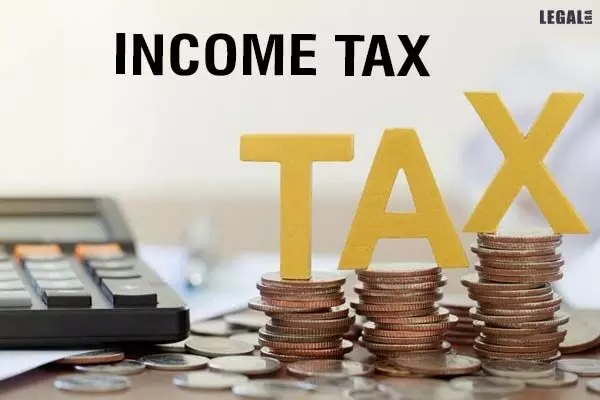- Home
- News
- Articles+
- Aerospace
- Artificial Intelligence
- Agriculture
- Alternate Dispute Resolution
- Arbitration & Mediation
- Banking and Finance
- Bankruptcy
- Book Review
- Bribery & Corruption
- Commercial Litigation
- Competition Law
- Conference Reports
- Consumer Products
- Contract
- Corporate Governance
- Corporate Law
- Covid-19
- Cryptocurrency
- Cybersecurity
- Data Protection
- Defence
- Digital Economy
- E-commerce
- Employment Law
- Energy and Natural Resources
- Entertainment and Sports Law
- Environmental Law
- Environmental, Social, and Governance
- Foreign Direct Investment
- Food and Beverage
- Gaming
- Health Care
- IBC Diaries
- In Focus
- Inclusion & Diversity
- Insurance Law
- Intellectual Property
- International Law
- IP & Tech Era
- Know the Law
- Labour Laws
- Law & Policy and Regulation
- Litigation
- Litigation Funding
- Manufacturing
- Mergers & Acquisitions
- NFTs
- Privacy
- Private Equity
- Project Finance
- Real Estate
- Risk and Compliance
- Student Corner
- Take On Board
- Tax
- Technology Media and Telecom
- Tributes
- Viewpoint
- Zoom In
- Law Firms
- In-House
- Rankings
- E-Magazine
- Legal Era TV
- Events
- Middle East
- Africa
- News
- Articles
- Aerospace
- Artificial Intelligence
- Agriculture
- Alternate Dispute Resolution
- Arbitration & Mediation
- Banking and Finance
- Bankruptcy
- Book Review
- Bribery & Corruption
- Commercial Litigation
- Competition Law
- Conference Reports
- Consumer Products
- Contract
- Corporate Governance
- Corporate Law
- Covid-19
- Cryptocurrency
- Cybersecurity
- Data Protection
- Defence
- Digital Economy
- E-commerce
- Employment Law
- Energy and Natural Resources
- Entertainment and Sports Law
- Environmental Law
- Environmental, Social, and Governance
- Foreign Direct Investment
- Food and Beverage
- Gaming
- Health Care
- IBC Diaries
- In Focus
- Inclusion & Diversity
- Insurance Law
- Intellectual Property
- International Law
- IP & Tech Era
- Know the Law
- Labour Laws
- Law & Policy and Regulation
- Litigation
- Litigation Funding
- Manufacturing
- Mergers & Acquisitions
- NFTs
- Privacy
- Private Equity
- Project Finance
- Real Estate
- Risk and Compliance
- Student Corner
- Take On Board
- Tax
- Technology Media and Telecom
- Tributes
- Viewpoint
- Zoom In
- Law Firms
- In-House
- Rankings
- E-Magazine
- Legal Era TV
- Events
- Middle East
- Africa
Gujarat High Court Rules Against Re-Assessment Notices Based On Mere “Change Of Opinion” Regarding Material Available At The Time Of Scrutiny

Gujarat High Court Rules Against Re-Assessment Notices Based On Mere “Change Of Opinion” Regarding Material Available At The Time Of Scrutiny
The Gujarat High Court has reaffirmed that an Assessing Officer under the Income Tax Act, 1961, cannot issue a notice for re-assessment of income under Section 148 based solely on a “change of opinion” regarding material already submitted by the assessee during the scrutiny process under Section 143(2).
The division bench, comprising Justices Bhargav D. Karia and Niral R. Mehta, stated, “In our considered opinion, the assessee-petitioner, at the time of filing the original return and thereafter in the scrutiny, has already furnished the requisite details. Thus, the Assessing Officer forming his opinion on the material already available on record, or the material that was already considered by the previous Assessing Officer, is nothing but a change of opinion.”
The assessment in question involved capital gain entries made by the petitioner-assessee for the Assessment Year 2016-17 and a deduction claimed under Section 54F. In 2018, a limited scrutiny notice was issued to the petitioner, and after reviewing the material provided by the assessee, the then Assessing Officer, under Section 143(3), framed the assessment without altering the original income declared by the petitioner for that year.
However, in 2021, the current assessing officer issued a re-assessment notice. On February 2, 2022, the officer dismissed the petitioner’s objections and deemed the reopening justified, prompting the filing of this petition.
The High Court observed that it was not the case of the Assessing Officer that any new information or tangible material had come into possession. “Thus, in our view, forming any opinion based on the same facts and circumstances that were available to the Assessing Officer at the time of scrutiny is deemed a change of opinion and is therefore not permissible,” the court concluded.
The bench referred to the Supreme Court's ruling in Commissioner of Income-tax, Delhi v. Kelvinator of India Ltd. (2010), which clearly stated that allowing an Assessing Officer to reopen past assessments based solely on a change of opinion would be arbitrary.
Consequently, the petition was allowed, and the impugned notice was quashed.



